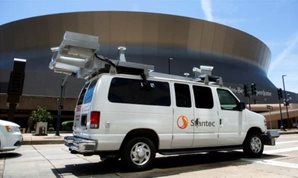The City of New Orleans Department of Public Works (DPW) and Sewerage and Water Board of New Orleans (SWBNO) are working together to implement an unprecedented program to restore our damaged infrastructure. Using local and federal funds, the $2.3B program is the most comprehensive that our region has seen in a generation.
What you should know about ROADWORKNOLA
- More than $2.3B worth of DPW / SWBNO work across the City
- Nearly 200 individual projects -- every neighborhood will feel this positive impact
- Project schedules coordinated to minimize construction-related impacts
- Economic opportunity for the City’s small and disadvantaged businesses
- Proactive communications so that residents are well informed throughout the program
City-wide pavement assessment
The City completed a comprehensive, scientific assessment of City-owned streets in spring 2015 and received the final results of the assessment in the summer of 2016. The City is using the results of the pavement assessment as part of the method to prioritize future infrastructure projects. To review results on your block click here. To view the full report, click here. To view the informational factsheet click here.
Results
- The current average pavement condition rating for the City’s streets is Poor (D-).
- Approximately 65% of the City’s streets rated in Poor or worse condition.
- Historical levels of funding for streets is inadequate to prevent the overall condition of the City’s streets from getting worse.
- It would take approximately $5B in funding to reconstruct/repave all of the City’s streets that are currently in Poor or worse condition.
Road conditions summary
| Class |
Description |
Cost |
| Excellent |
New Pavement, with no need for repair. |
$ |
| Good |
No major defects were found in the pavement. |
$$ |
| Fair |
Minor paving problems were found that do not impact driving. |
$$$ |
| Poor |
Defects in the pavement can affect driving on these streets. |
$$$$ |
| Very Poor |
Medium-sized defects were found, moderately affecting driving. |
$$$$ |
| Failure |
Large pieces of pavement were missing, and driving is severely impacted. |
$$$$ |
Road Tester 3000
 The condition of the roadways was captured via the Road Tester 3000, which was equipped with lasers, inertial GPS and high-definition digital imagery to simultaneously collect the pavement profile, rutting and roadway geometrics. The results of the assessment were used to determine the pavement surface distress and identify where all such pavement conditions exist.
The condition of the roadways was captured via the Road Tester 3000, which was equipped with lasers, inertial GPS and high-definition digital imagery to simultaneously collect the pavement profile, rutting and roadway geometrics. The results of the assessment were used to determine the pavement surface distress and identify where all such pavement conditions exist.
Replacement of lead service lines
As part of the Capital Improvement Program, the SWB may be replacing lead services between the water main and residential or business meters. This could cause lead levels in your drinking water to increase temporarily (this could last several weeks to several months). If you are notified that a lead service from the water main will be replaced, you should complete the following steps:
- Run cold water at a high flow at all of your faucets for at least 5 minutes each, one at a time, starting with the faucet closest to your water meter, to remove any lead particles that may have gotten into your plumbing when we were working on your service line.
- After flushing your faucets, clean your faucet aerators. Lead particles can be trapped in aerators. Simply unscrew the aerator from the tip of the faucet, wash and replace it. We recommend continued flushing for at least a month before using the water for drinking and cooking after the repair has been completed.
- Consider having a Licensed Master Plumber inspect the service line from the meter to your home. If it is a lead line, we recommend that you have it replaced.
- Customers may also call our Water Quality Laboratory at 865-0420 to request to have your water tested for lead.
- Consider obtaining NSF-certified filters that are rated to remove lead.
For more tips on reducing lead in drinking water visit our website at www.swbno.org or the Environmental Protection Agency’s website at www.epa.gov/safewater/lead. For more information call 52-WATER (504-529-2837).